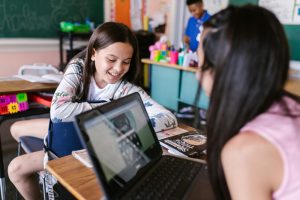Field Trips That Expand Learning Beyond Classroom Boundaries
What if I told you that learning can extend beyond the four walls of a classroom? Field trips offer a unique opportunity for students to gain hands-on experience and expand their learning beyond traditional textbook knowledge. These excursions can bring lessons to life, provide a real-world perspective, and foster a deeper understanding of subjects. In this article, we will explore the power of field trips in expanding learning beyond classroom boundaries and how they can enhance a student’s educational journey.
The Importance of Field Trips
Field trips have been a staple in education for many years, and for a good reason. They offer a myriad of benefits that cannot be replicated in a classroom setting. From fostering critical thinking skills to promoting social interactions, field trips have the power to enrich a student’s learning experience.
Hands-on Experience
One of the main benefits of field trips is that they provide students with hands-on experience. Whether it’s visiting a historical site, a science museum, or an art exhibit, students have the opportunity to touch, see, and experience what they are learning about in class. This interactive learning approach helps students retain information better and make connections between what they have learned in the classroom and the real world.
Real-World Perspective
Field trips also offer a real-world perspective that cannot be replicated in a classroom. Students can see how what they are learning applies to the world around them and understand the relevance and importance of their studies. This added context can make learning more meaningful and engaging for students, as they can see firsthand how the concepts they are studying are applied in the real world.
Developing Critical Thinking Skills
Another significant advantage of field trips is that they foster critical thinking skills. These excursions force students to think outside the box, engage in problem-solving, and make connections between different concepts. When students are presented with real-life scenarios, they have to think critically and analyze information to find solutions, which can help them develop essential skills for their future.
Social Interaction
Field trips also provide a great opportunity for students to socialize with their peers and build relationships outside the classroom. These experiences allow students to interact and work with their classmates in a different setting, promoting teamwork and strengthening their communication skills. These social interactions can also help boost a student’s confidence and self-esteem, creating a positive learning environment.
Expanding Learning Beyond Boundaries
The most significant advantage of field trips is that they expand learning beyond classroom boundaries. They offer a wide range of experiences that cannot be replicated in a traditional classroom, allowing students to explore new and unfamiliar environments. This exposure to different settings and cultures can open up a whole new world of learning opportunities for students.









